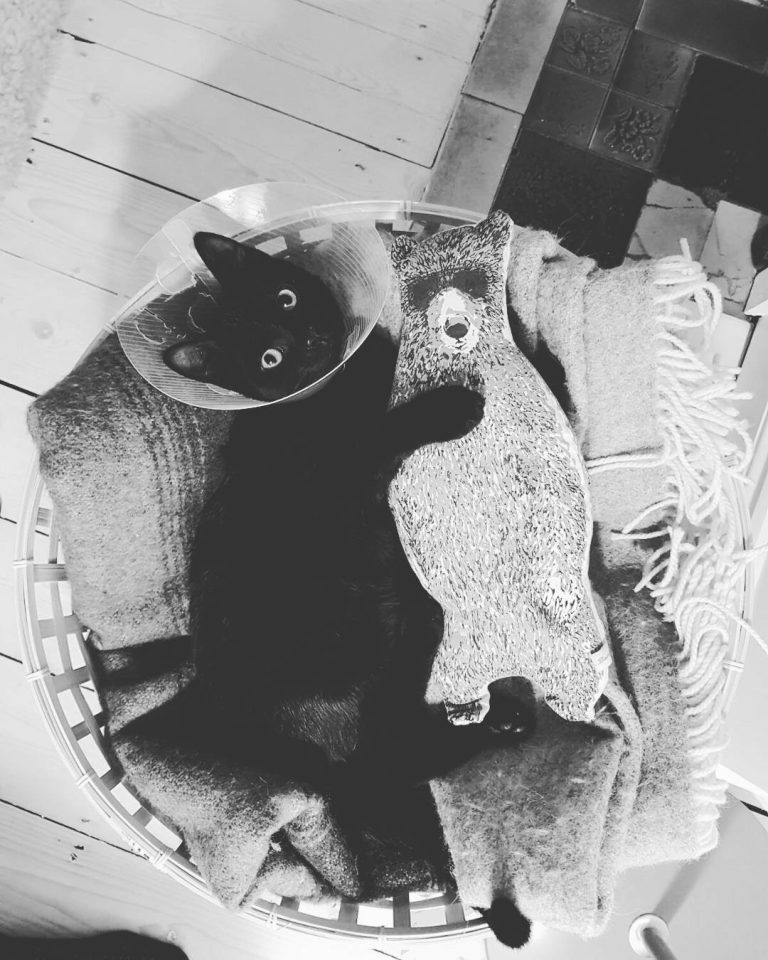Why Is My Cat Suddenly Acting Strange?
Cats are known for their quirky and sometimes unpredictable behaviors, but when your usually calm and affectionate cat starts acting strange, it can be concerning. Sudden changes in a cat’s behavior can stem from a variety of reasons, including physical health issues, emotional stress, or changes in their environment. Understanding the potential causes behind your cat’s odd behavior is the first step toward helping them return to their normal, happy self.
1. Health Issues
A sudden change in behavior is often a sign that something is wrong with your cat’s physical health. Cats are experts at hiding pain, so subtle behavioral shifts can be a clue that they are unwell. Some possible health-related reasons for strange behavior include:
- Pain or discomfort: If your cat becomes aggressive, hides more often, or seems lethargic, it could be due to pain from an injury, dental problems, or arthritis.
- Illness: Conditions like kidney disease, hyperthyroidism, or urinary tract infections can cause significant behavioral changes, such as increased irritability, vocalization, or inappropriate urination.
- Vision or hearing loss: Older cats may experience changes in their senses, leading to confusion, disorientation, or fear, which can cause them to act out of character.
If you suspect a medical issue, it’s essential to schedule a visit with the vet. Early diagnosis and treatment can help alleviate the problem and return your cat to its usual behavior.
2. Environmental Changes
Cats are creatures of habit, and they thrive in stable, predictable environments. A sudden shift in their surroundings can easily cause stress, leading to strange behaviors.
- Moving to a new home: Relocating can be a traumatic experience for cats. The unfamiliar sights, sounds, and smells of a new environment can cause them to become withdrawn, anxious, or overly active.
- New furniture or renovations: Even small changes, like moving furniture or introducing new items to the home, can make your cat feel uneasy.
- New pets or family members: Introducing a new pet or a baby into the household can disrupt your cat’s sense of security, leading to changes in behavior such as hiding, aggression, or attention-seeking behaviors.
3. Stress and Anxiety
Cats can experience stress and anxiety just like humans. If your cat is acting strangely, it could be a reaction to emotional distress.
- Loud noises or changes in routine: Cats are easily startled by loud noises, such as thunderstorms, fireworks, or construction work. Additionally, changes in their daily routine—such as feeding times or litter box location—can lead to stress.
- Separation anxiety: If you’ve been away more often than usual, your cat might feel anxious or lonely, leading to behaviors like excessive meowing, clinginess, or destructive actions.
- Social stress: Multi-cat households or conflict with neighborhood cats can cause social stress. Cats may become territorial, leading to aggressive behavior or marking their territory by spraying.
4. Boredom or Lack of Stimulation
Cats are intelligent, curious animals that need mental and physical stimulation. If your cat is acting out or behaving strangely, they might be bored or frustrated.
- Increased vocalization or restless behavior: If your cat seems restless, paces around the house, or meows more than usual, they may be bored and seeking stimulation.
- Destructive behaviors: Scratching furniture, knocking objects off shelves, or chewing on cords can be signs that your cat is looking for an outlet for their energy.
To address this, try providing more interactive toys, puzzle feeders, or playtime. Engaging with your cat regularly can help reduce boredom and unwanted behaviors.
5. Aging and Cognitive Dysfunction
As cats get older, their cognitive abilities can decline, leading to a condition similar to dementia in humans known as feline cognitive dysfunction (FCD). This can cause your cat to act confused, forgetful, or disoriented.
- Disorientation: Older cats with FCD may seem lost in familiar environments or stare at walls and objects with no apparent reason.
- Changes in sleep patterns: Cats with cognitive decline may become more active at night or display erratic sleep patterns.
- Increased vocalization: If your older cat starts yowling or meowing excessively, especially at night, it could be a sign of cognitive dysfunction.
If you notice these signs in your aging cat, consult with your veterinarian. They can provide advice on how to manage cognitive decline and make your cat more comfortable.
6. Seasonal and Hormonal Changes
Your cat’s behavior may also fluctuate due to changes in their natural instincts, driven by seasonal or hormonal factors.
- Mating behavior: If your cat is not spayed or neutered, they may act strangely during mating seasons. Female cats in heat may vocalize loudly, become more affectionate, or try to escape to find a mate. Male cats may become more territorial and aggressive, especially if they sense a female in heat nearby.
- Changes in daylight: Some cats are sensitive to changes in daylight, which can affect their energy levels and behavior. They may become more active or restless during longer days in spring and summer.
7. Behavioral Disorders
In some cases, strange behavior may be linked to behavioral disorders, such as obsessive-compulsive disorder (OCD). Cats with OCD may engage in repetitive behaviors, such as over-grooming, pacing, or tail chasing. If these behaviors become excessive or interfere with your cat’s quality of life, behavioral therapy or medications may be necessary.
How to Help Your Cat
If your cat is suddenly acting strange, here are some steps you can take:
- Consult a veterinarian: Rule out any underlying medical issues with a thorough veterinary exam.
- Provide a stable environment: Keep your cat’s environment as predictable as possible and avoid sudden changes in their routine.
- Engage in regular playtime: Ensure your cat gets enough physical and mental stimulation to prevent boredom.
- Reduce stress triggers: Identify and eliminate sources of stress, such as loud noises or new pets, and create a calm, safe space for your cat to retreat to.
Conclusion
A sudden change in your cat’s behavior can be alarming, but it’s often their way of communicating that something is wrong. Whether it’s due to health issues, environmental changes, or emotional stress, paying close attention to your cat’s behavior and seeking professional advice can help resolve the problem. By understanding the root cause of your cat’s strange actions, you can ensure they remain happy, healthy, and stress-free.










